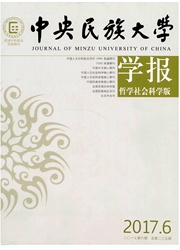

 中文摘要:
中文摘要:
摘要:由于没有文字记载,苗族只能靠口耳相传的方式来记录和叙述其艰难的迁徙史,因而演绎成为具有史诗性质的古歌。苗族古歌在内容和传承方式上均有特殊的神秘色彩,不仅具有人类学、宗教学、民俗学、文学、神话学、音乐学、美学价值,在教育、审美和娱乐等方面也有较高价值,其口传范式尤其引人注目。将苗族古歌置于历史的特定场域加以考察,思考口传史诗范式在苗族古歌传承中的重要作用,不仅有助于我们深入了解苗族的精神世界和社会生活面貌,也可以为口传史诗的研究提供有价值的史诗研究视野及研究维度。
 英文摘要:
英文摘要:
The Hmong people recorded and transmitted their migration history from mouth to mouth and then transformed it into epical ancient songs in the form of historical narration. As ancient narrative long songs, Hmong Epics are distinctive in its content and transmission norm which have certain research values not only in anthropology, religionoplogy, folkology, literature, mythology, misics and aesthetics, but also in education, appreciation and entertainment. One of the most attractive features is the oral transmission norm. The paper aims at examining the ancient songs in special context and evaluates the important role of oral-transmission norm in the inheritance of Hmong Epics, which can help us understand the spiritual world and social life of Hmong people. The paper then presents view and dimensionality for the research of epics oral-transmission norm.
 同期刊论文项目
同期刊论文项目
 同项目期刊论文
同项目期刊论文
 期刊信息
期刊信息
